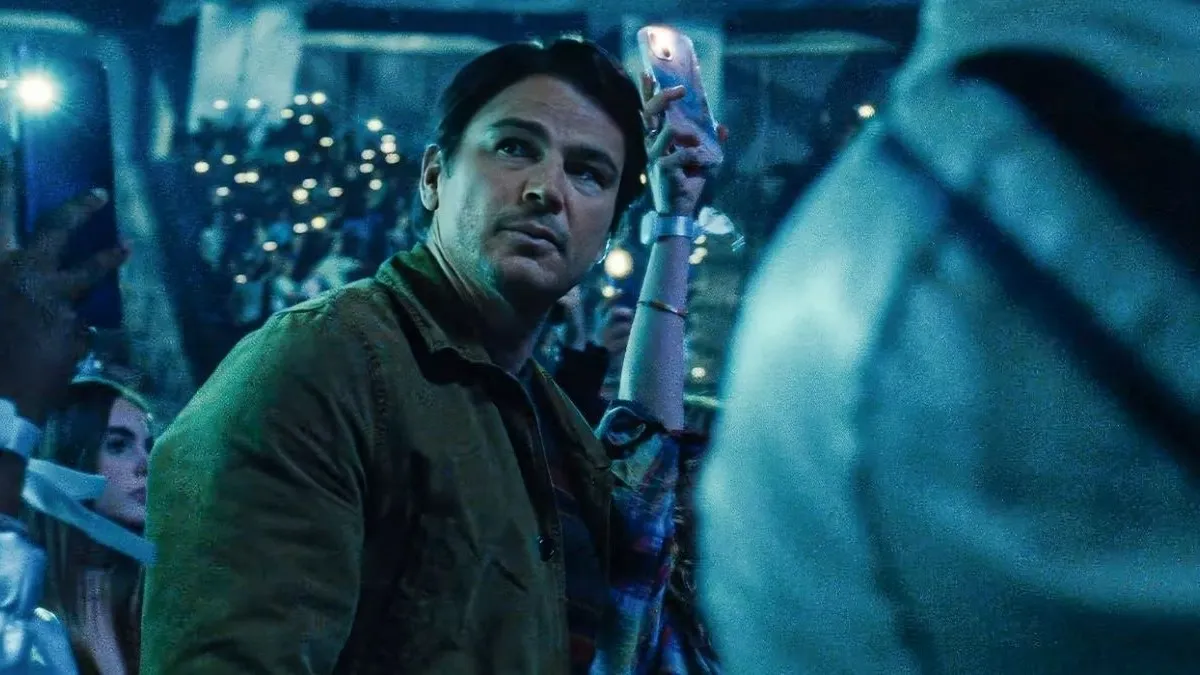Some films are easier to praise for their technical prowess than others, as trying to break down an organic experience into component parts can sound like a coroner’s work. But the formal rigor of Son of Saul is intrinsic to the shell-shock impact it delivers – approaching it from a perspective of analytical remove can feel like the only way to talk about it after an initial viewing. Son of Saul is an anguishing and exhausting test of personal beliefs, and will leave you with a few of your own to ponder. Has Hungarian director László Nemes crafted a full-blown masterpiece with his first feature? How do you distinguish between representations of genocide that are empathetic and enlightening, and those that are nihilistic, or exploitative?
What Son of Saul will make you believe in again is the power of long takes. Engorged shot lengths and a paucity of cuts have been talked about in movies and television lately as a de facto sign you’re watching quality filmmaking. Protracted is better, or so the thinking seems to go, so much so that last year’s Best Picture winner developed its most poignant commentary on male insecurity by also assuming longer takes are inherently more satisfying. Between indies flaunting average shot length as their selling point, or blockbusters using them for the sake of looking cool, it’s rare to find a long take that feels half so natural as the immediacy of place it’s supposed to be inspiring.
The high minutes-to-cuts ratio found in Son of Saul wasn’t going to make it a critical darling right out of the gate, but Nemes’ direction and the editing of Matthieu Taponier most certainly have. Judged solely on its first two shots, Son of Saul is one of the most immersive and traumatizing historical dramas ever made. For ten minutes, we follow Saul Ausländer (Géza Röhrig), a Jewish Hungarian prisoner, as he goes about his day in Auschwitz in 1944. Over the course of those minutes, we see him lie, steal, and lead dozens of people to their doom.
What little exposition Son of Saul requires is taken care of during the opening images. A title card defines Saul’s position of sonderkommando, a prisoner responsible for running the crematoriums of the concentration camps. Able to move through the camps with a small degree of autonomy, but fed to the fires they keep after only a few months of work, the red “X” on the backs of the kommandos is just another reminder that these men are marked for death.
Using an extremely shallow depth of field and a claustrophobic 1:1 aspect ratio, Nemes has the camera fixed on Saul for almost the entirety of the film, rarely straying more than a few feet away from him. In many shots, Röhrig is the only clear element. The myopic imagery is meant to protect you from the horror that constantly surrounds Saul, while simultaneously putting you in the headspace of an unwilling cog in the Nazi murder factories. When your survival demands that you help facilitate the deaths of thousands of others, how can you do anything but look away?
Son of Saul is almost unrelentingly bleak in its portrayal of what such collaboration does to the kommandos, most of who still cling to divides in ethnicity and religion. Though some of the prisoners have known each other for months, and plot an escape together, there’s little room for camaraderie or fellowship when life is cheap. After discovering a dead body he believes to be his son, Saul seeks out a rabbi that can ensure the boy a proper Jewish burial. The search takes him to every station in the Auschwitz death machine, from train car arrival to ash disposal.
Röhrig’s face and performance are built for study, never openly betraying what Saul’s real motives might be. Why does he observe no other religious tradition, but risk so much for this one? Is the boy really his son, or has he lost his mind? The latter seems more plausible. Pushing atrocities to the margins of the frame doesn’t erase them, and eventually not even Saul can stay turn a blind eye. It’s the sound work by Tamás Székely and Tamás Zányi that really haunts. That opening ten minutes ends in a din so disturbing that when Nemes does finally, finally cut away, you’re really not sure where Son of Saul has left to go.
As with any film showing cruelty of such scale with such intimacy, sifting through the misery for something of meaning is paramount to deciding when, if ever, Nemes pushes too far. The lifelessness etched into Röhrig’s face encourages your instinct to go numb. The film, at times, seems dependent on its increasingly monstrous acts of inhumanity, the shock being required to bring you back to your sense. Nemes’ formal choices seem designed to minimize Son of Saul’s risk of exploiting historical tragedy for emotional heft, but the clearer his view of true evil gets, the blurrier this intent becomes. For many, it will take a long time to work up the courage to view Son of Saul again in order to decide whether Nemes’ first is just devastating, or the great film it often appears to be.






